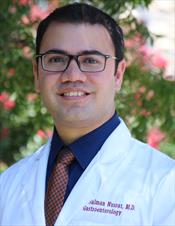Author Interviews, C. difficile, Gastrointestinal Disease, Transplantation / 22.10.2015
Three Factors Identify Risk of Fecal Transplant Failure for C. Diff Infections
MedicalResearch.com Interview with:
Monika Fischer, MD, MSCR
Assistant Professor of Clinical Medicine
Division of Gastroenterology and Hepatology
Indiana University
Indianapolis, IN 46202
Medical Research: What is the background for this study? What are the main findings?
Dr. Fischer: Cumulative evidence based upon case series and randomized trials suggest high success rate with 10-20 % failing a single FMT (fecal microbiota transplant). Predictors of failures are not known. In a collaborative study between Indiana and Brown Universities we aimed to identify clinical predictors of FMT failure.
Results were the following:
- N= 345 patients
- Brown: N=166
- IU: N=179
- Average age: 62 years
- Females: 72%
- IBD: 18%
- Immunosuppression: 24%
- Indication for FMT
- Recurrent CDI: 74%
- Refractory CDI: 26%
- Severe/complicated CDI: 13%
- Inpatient FMT: 17%
- Patient directed donor: 40%



